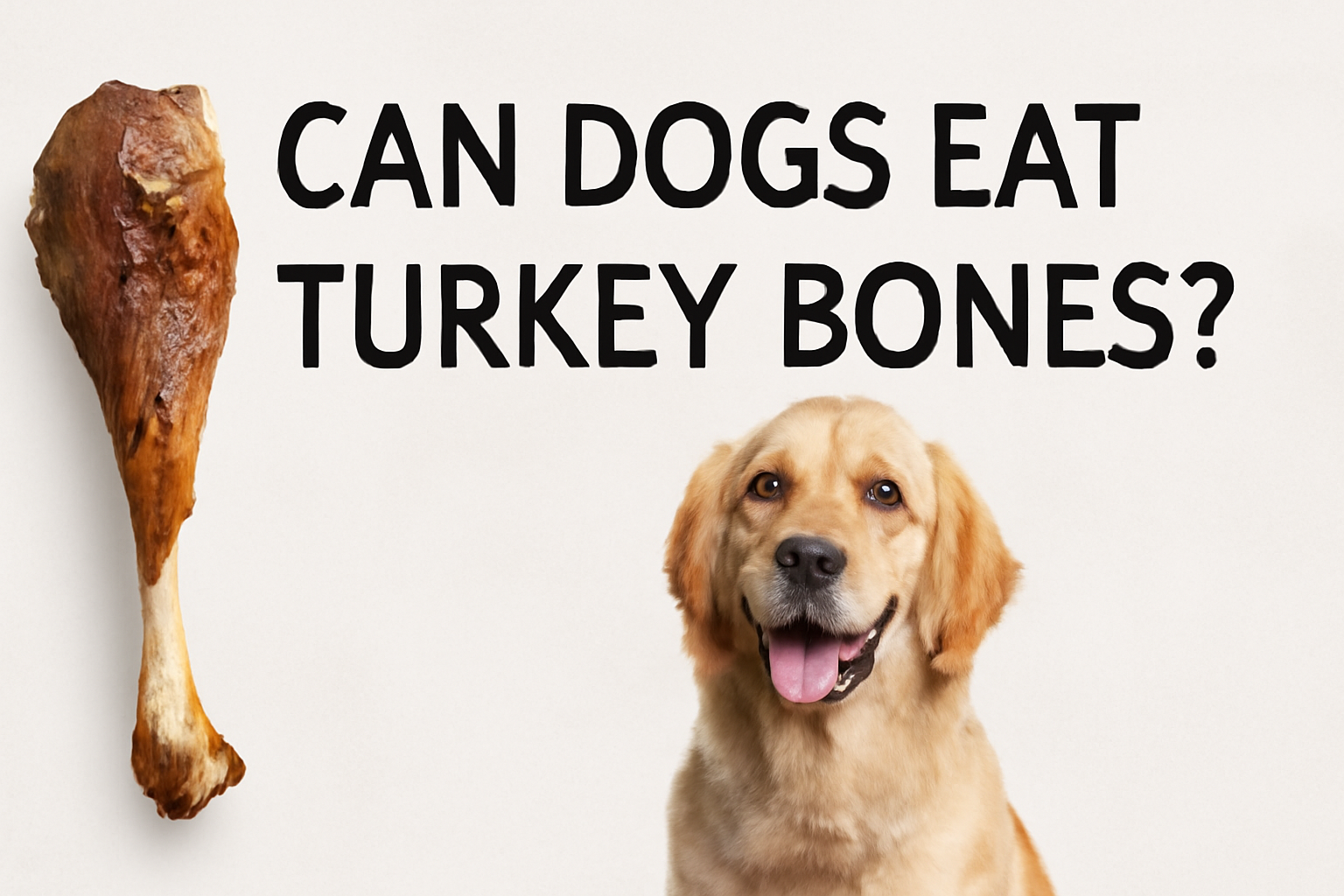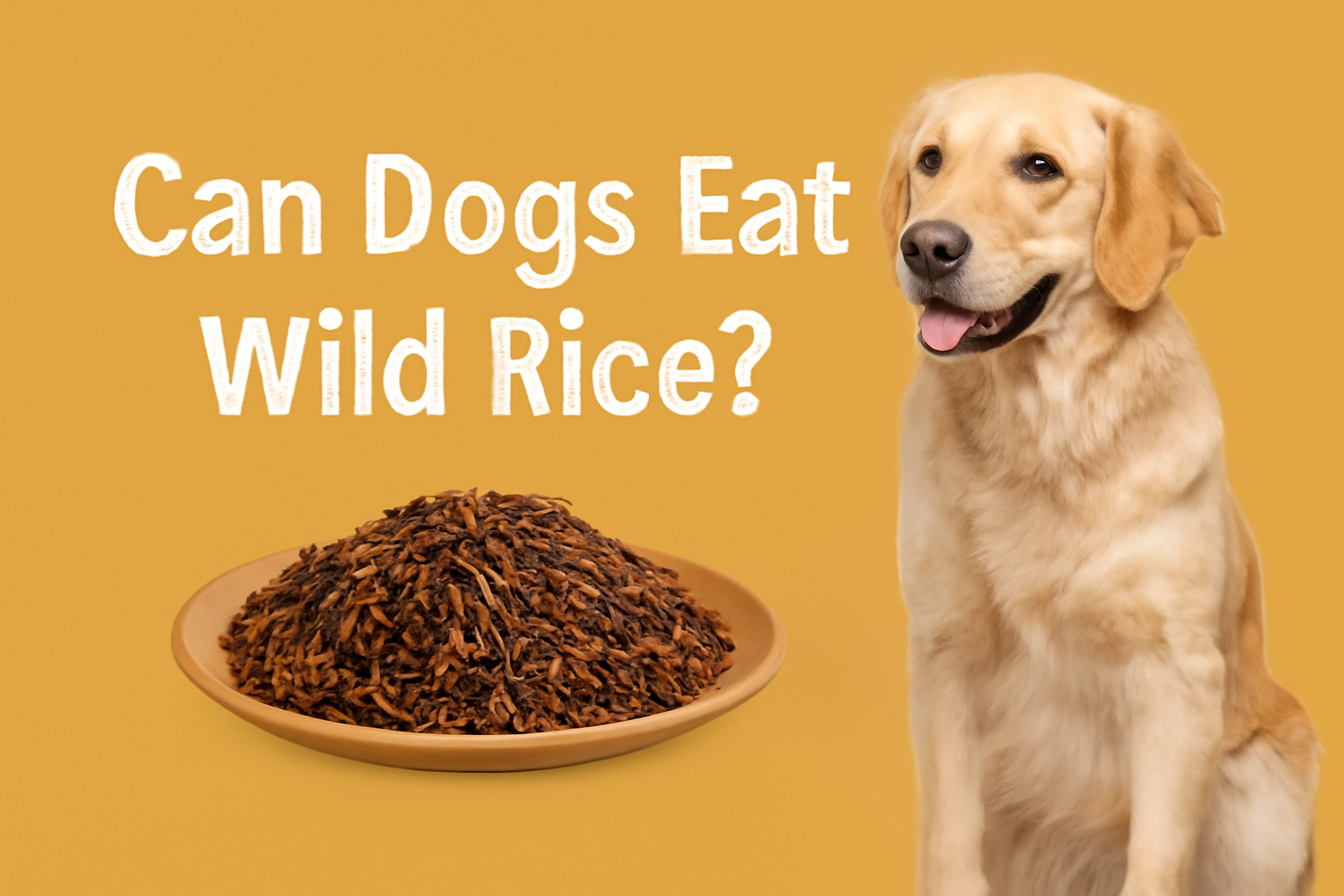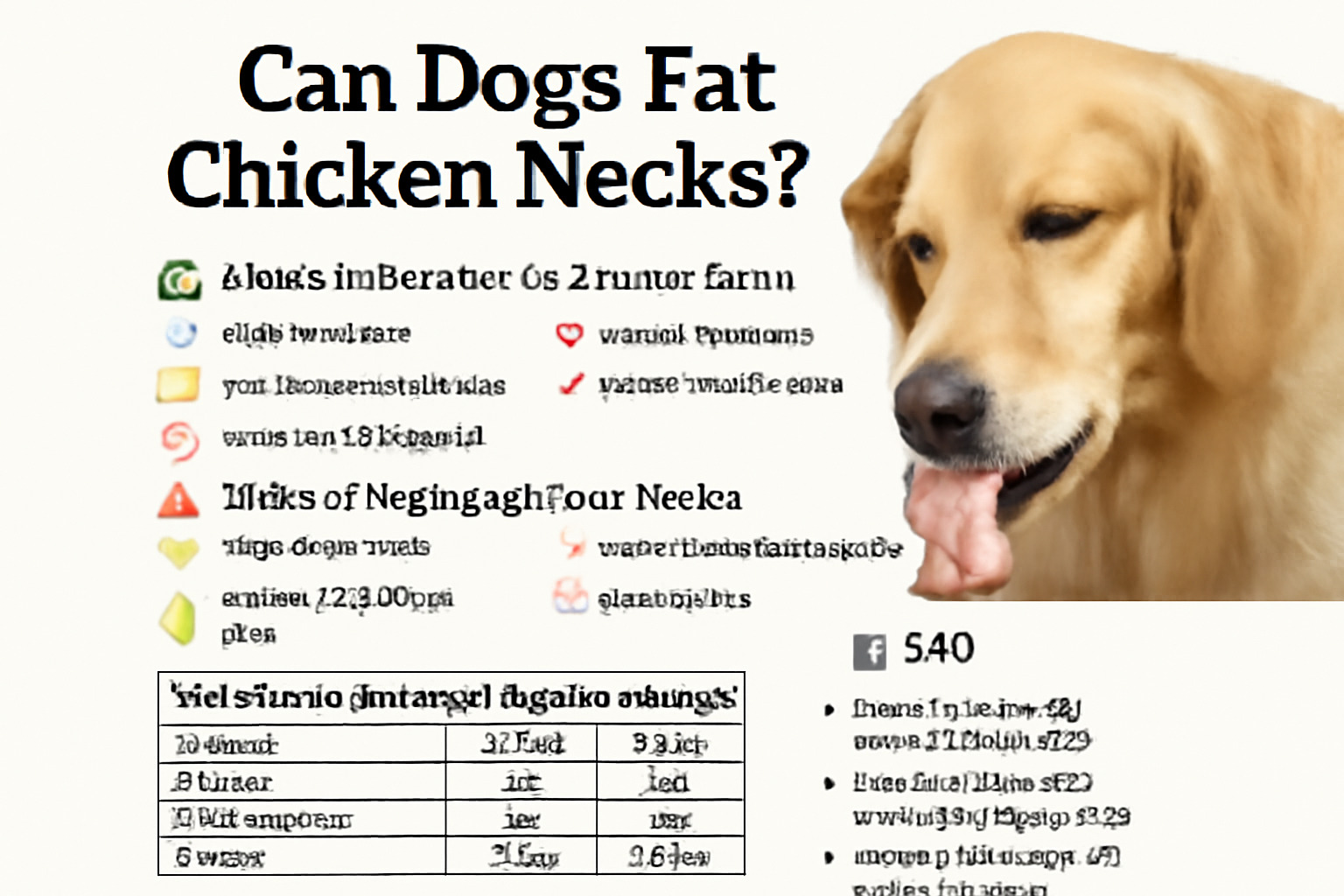Can Dogs Eat Turkey Bones? Risks and Safety Tips for Your Furry Friend 🦴🐕
Introduction
As dog owners, we all love to treat our furry friends to something special. Whether it’s sharing a snack, giving them a bone to chew, or letting them enjoy leftovers, it’s natural to want to spoil our pets. But some foods that are safe and healthy for humans are not suitable for dogs—and turkey bones are one such food.
You might have wondered, “Can dogs eat turkey bones?” It seems harmless to give your dog a leftover turkey bone after a holiday meal, but the truth is that turkey bones can pose serious health risks to your dog. In this article, we’ll explain why turkey bones are dangerous for dogs, the potential risks involved, and what safer alternatives you can give your dog instead. 🦴
Why Are Turkey Bones Dangerous for Dogs? ⚠️
Turkey bones, especially cooked bones, are harmful to dogs for a number of reasons. While bones are a natural part of some animals’ diets, cooked turkey bones can cause serious injuries and health problems for dogs. Here are the key risks:
1. Bones Can Splinter and Cause Internal Injury 🦴
When turkey bones are cooked, they become brittle and fragile. As dogs chew on them, the bones can splinter, breaking into sharp pieces that can cause severe damage to your dog’s digestive system. These splinters can:
- Puncture or tear the gastrointestinal tract, leading to infections and internal bleeding.
- Cause an intestinal blockage that may require surgery to remove.
- Lead to choking, especially in smaller dogs, as the sharp bone fragments can get stuck in their throat.
This risk is much higher with cooked bones compared to raw bones, which are generally softer and less likely to splinter.
2. Choking Hazard 🚨
Turkey bones, especially the smaller ones, can become a serious choking hazard. As dogs chew on the bones, they may accidentally swallow a large piece, which could block their airway and cause suffocation. This can lead to an emergency situation that requires immediate attention from a veterinarian.
3. Digestive Issues 💩
Even if a dog manages to swallow a turkey bone, it can still cause major digestive problems. These problems include:
- Vomiting 🤢
- Diarrhea 💩
- Abdominal pain 😖
- Loss of appetite 🍽️
If a dog swallows a turkey bone and it gets stuck in the digestive system, it may result in severe pain and discomfort. In some cases, the dog may need to undergo surgery to remove the bone or treat the injury.
4. Intestinal Blockage 🏥
An intestinal blockage is one of the most serious consequences of eating turkey bones. The bone can get stuck in the intestines, causing a blockage that prevents food from passing through. This condition is very painful and can lead to complications like dehydration, infection, and sepsis if not treated. In extreme cases, an intestinal blockage can be fatal.
5. Peritonitis (Abdominal Infection) 🩺
If a bone punctures the digestive tract, it can lead to peritonitis, a potentially life-threatening condition where the abdominal cavity becomes infected. This infection is caused by the leakage of bacteria from the intestines into the abdominal cavity. Symptoms of peritonitis include fever, lethargy, abdominal swelling, and a loss of appetite. This condition requires immediate veterinary treatment.
What Are the Symptoms of Turkey Bone Ingestion? 🤒
If your dog has eaten a turkey bone, it’s important to watch for any signs of distress or discomfort. Some symptoms to look out for include:
- Vomiting 🤢
- Diarrhea 💩
- Lethargy 🛏️
- Abdominal bloating or pain 🤕
- Loss of appetite 🍽️
- Straining to defecate 🐕
- Choking or gagging 🤧
If you notice any of these signs, contact your veterinarian immediately. If your dog is choking or having trouble breathing, this is an emergency situation that requires immediate intervention.
Safer Alternatives to Turkey Bones for Dogs 🍗
If you want to treat your dog to something special, there are plenty of safe alternatives to turkey bones that are just as fun and satisfying for your dog. Here are some options:
1. Raw Bones 🦴
While raw bones (such as raw beef marrow bones or raw lamb bones) are generally safer for dogs, they should still be given under supervision. Raw bones are less likely to splinter than cooked bones, but they still come with risks. Make sure the bone is large enough that your dog cannot swallow it whole. Always supervise your dog while they chew on bones to avoid choking.
2. Dog-Specific Chews 🦷
There are many dog-friendly chew toys and treats available that are designed to be safe and healthy for dogs. These include:
- Nylon bones: Durable and designed to withstand a lot of chewing.
- Rubber chew toys: Soft yet strong, perfect for aggressive chewers.
- Edible chews: These chews are designed to be safe for digestion and can help clean your dog’s teeth.
These alternatives are safe and can help satisfy your dog’s natural chewing instincts.
3. Dehydrated Meat Chews 🍖
You can also offer your dog dehydrated meat chews, which are specially prepared to be safe for canine consumption. These include chews made from chicken, turkey, or beef. Be sure to choose products that are free from preservatives, additives, and artificial flavors.
4. Vegetable Chews 🥕
If you’re looking for something even healthier, you can give your dog vegetable chews like carrots, sweet potatoes, or green beans. These are low-calorie, safe, and provide a satisfying crunch without the risk of splintering.
Nutritional Value of Turkey 🦃
Here’s the nutritional value of turkey meat (without bones) for both humans and dogs. While turkey can be a healthy source of protein for dogs, avoid feeding them turkey bones.
| Nutrient | Amount per 100g of Turkey Meat |
|---|---|
| Calories | 135 kcal |
| Protein | 30g |
| Fat | 1g |
| Carbohydrates | 0g |
| Fiber | 0g |
| Calcium | 13mg |
| Iron | 1.4mg |
As shown in the table, turkey meat is an excellent source of protein, which is great for muscle development and overall health. It’s also low in fat, making it a good option for dogs that need to maintain a healthy weight.
FAQ About Dogs and Turkey Bones ❓
1. Can dogs eat turkey bones?
No, dogs should not eat turkey bones—especially cooked turkey bones. They can splinter and cause choking, digestive issues, or severe internal injuries.
2. What should I do if my dog eats a turkey bone?
If your dog eats a turkey bone, monitor them closely for signs of digestive upset or discomfort. If your dog is showing symptoms like vomiting, diarrhea, or choking, contact your vet immediately.
3. Can I give my dog turkey meat without bones?
Yes, turkey meat without bones is safe for dogs, provided it’s cooked properly (without any seasoning or additives). Turkey is a good source of lean protein for dogs.
4. What are safe alternatives to turkey bones for dogs?
Safe alternatives include raw bones (with supervision), dog-safe chews, dehydrated meat chews, and vegetable chews like carrots and sweet potatoes.
5. Can turkey bones cause an intestinal blockage in dogs?
Yes, turkey bones can cause intestinal blockages if swallowed whole or if pieces get stuck in the digestive system. This can be a serious medical emergency that requires immediate veterinary attention.
6. Are turkey bones harmful to dogs when raw?
While raw turkey bones are generally safer than cooked bones, they should still be given with caution. Always supervise your dog and ensure the bone is large enough to avoid swallowing it whole.
Conclusion 🐾
In conclusion, while turkey meat is a healthy source of protein for dogs, turkey bones are dangerous and should never be given to your dog. The risks of choking, splintering, and internal injury are too high. If you want to treat your dog, choose safer alternatives like raw bones, dog-safe chews, or healthy vegetable snacks.
Always be mindful of what your dog is chewing, and if in doubt, consult your vet for advice on the best treats and bones for your dog. By keeping your dog safe from dangerous foods like turkey bones, you’re helping ensure that they stay healthy and happy for years to come! 🐕❤️




